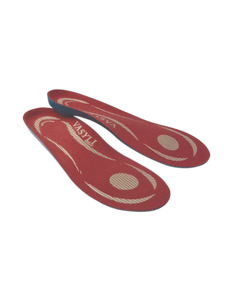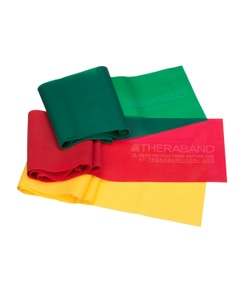Nursing can be incredibly rewarding and fulfilling, but sometimes it can also lead to feeling burned out or having compassion fatigue. Sometimes, you put so much time and effort into caring for your patients that it's easy to forget about caring for yourself.
Self-care matters, because you matter. And just like the safety announcements on airplanes that tell you to “put on your oxygen mask before helping others,” sometimes you need to remember to take care of yourself so you feel more prepared to take care of patients at work.
Key Takeaways
- Self-care can make you happier, healthier, and a better caregiver.
- Aim for one self-care activity a day, one a week, and one a month.
- Self-care includes your physical, mental, emotional, spiritual, personal, and professional health.
Table of Contents
What is Self-Care?
Seven Areas of Self-Care
How to Make Time for Self-Care
Ideas to Get Started with Self-Care
Top Products in This Article
What is Self-Care?
Self-care is a term that’s been growing in popularity lately. It refers to activities that take care of your emotional, mental, and physical health. It’s all about taking care of your unique needs and personal well-being. This means the exact actions that make up self-care vary from person to person. Some example activities include exercising, reading, or scheduling time to have dinner with a friend. The American Nurses Association (ANA) divides this into seven key categories.1
Seven Areas of Self-Care
- Mental
- Physical
- Emotional
- Spiritual
- Social
- Personal
- Professional
How to Make Time for Self-Care
Sometimes self-care can feel like more work and stress, but it’s important to find time between working, running errands, parenting, and other necessary tasks to take care of yourself. This makes you happier, healthier, and a better caregiver. It shouldn’t be an afterthought – you need to make the time.
Schedule one bigger self-care act a month, like a spa day, and one weekly act that takes less time, like a new fitness class. Put the time on your schedule and protect it. Make sure it doesn’t fall off your calendar when something else comes up.
Then, enjoy one short ritual a day: sit outside and drink your morning coffee or take the time to read a chapter of your new book. Those 10-15 minutes can help you get ready for your day or decompress at night.
That’s it! Aim for one activity a day, one a week, and one a month, put it on your calendar, and schedule other things around it. Make self-care a priority and don’t feel guilty – self-care helps you put your best self forward the rest of the time.
Ideas to Get Started with Self-Care
Mental
Adding intellectual self-care? Whether you want to explore what you’re curious about, take some time to think, or gain knowledge, it all falls under this category. Try these activities that stimulate your mind and satisfy your desire to learn.
At Work
- Read a nursing journal or magazine
- Attend an in-service training
- Share knowledge with a peer
- Act as a mentor for a student or new nursing grad
At Home
- Do a crossword puzzle
- Read a new book or an old favorite
- Explore a museum in your area
- Play a trivia game
- Listen to a podcast or audiobook on a topic that interests you
Physical
It’s important to stay physically healthy when treating others. With such a busy schedule, it can be hard to fit in time to exercise, prepare healthy food, and take care of yourself. But setting aside some time can help you with this portion of self-care and even help reduce your stress. Considering setting some goals like the ones below.
At Work
- Take a walk outside on your lunch break
- Park at the far end of the lot
- Bring healthy food from home
- Try doing documentation while standing
- Walk around the hallways when you have a break
- Wear comfy shoes with supportive insoles
- Treat your pain, whether you reduce foot pain with a THERABAND® foot roller or wear a back support brace to relieve back pain
At Home
- Cut up some fruits or veggies to bring to work
- Plan your meals for the week and make them ahead of time on your day off
- Take a bike ride, go for a run, head to the gym, or join a new fitness class
- Make the time to work out at home (use a resistance band or invest in a large piece of equipment, like an elliptical)
- Take a nap or go to bed early
- Put some music on and dance around
- Enjoy a massage (you can even give one to yourself using a foam roller!)
Emotional
Listen to your emotional needs and acknowledge them. By nurturing your feelings and expressing sad or happy emotions, you’re taking an important step in self-care. These are just a few ideas to get you started.
At Work
- Find things to laugh about
- Praise yourself when you do something great
- Write a thank you note to an old mentor
- Treat yourself with the same kindness you’d give to a coworker or friend
At Home
- Find an outlet for your emotions, like drawing or playing music
- Compliment yourself while looking in the mirror
- Allow yourself to cry when you’re sad
- Watch a funny or uplifting movie
- Make a playlist of music that brings you joy
Spiritual
Spiritual self-care means different things to different people. For some, it may mean connecting with your religious faith. For others, the focus might be on meaningful causes or developing peace within yourself. Choose activities that fit your needs!
At Work
- Respect the religion and culture of other co-workers and patients
- Practice mindfulness activities like meditation
- Plan how to respond to patients requests for prayers, whether you pray with them, talk about their concerns, or contact a chaplain
- Eat outside and observe nature
At Home
- Add yoga to your routine: take a class or grab a mat and try some exercises at home
- Keep a gratitude journal
- Volunteer for a cause that matters to you
- Make time for reflection
- Engage in your faith’s community: you might join a Bible study group or enjoy fellowship activities
Social
Humans are social creatures. In the busyness of your life, don’t forget to connect with others. Making time for friends and family is important. It could be as simple as a conversation or as elaborate as a vacation getaway. Enjoy time with the people that matter most in your life with ideas like those below.
At Work
- Talk to your coworkers about their weekend
- Eat lunch with the new nurse
- Celebrate another nurse’s birthday
- Have a short conversation with a barista, cafeteria worker, or someone else you wouldn’t normally talk to at work
At Home
- Go out to dinner with a friend
- Spend some time with your extended family
- Plan a date night with your significant other
- Play at a park or out in the backyard with your kids
- Take some time for yourself – you know the best socialization balance for you
Personal
Self-care isn’t just healthy, it can also be lots of fun! Make time for things you like to do and try some new ones. Enrich your life with one of these activities.
- Enjoy a spa day with a calming bubble bath, soothing eye mask, or paraffin wax
- Try a new adventurous activity, like hiking, skiing, or kayaking
- Schedule a haircut and try a new look
- Take time for your favorite hobbies
- Take up a new hobby (gardening, martial arts, knitting, pottery, horseback riding...the possibilities are endless!)
- Relax with essential oils
- Go on a drive and have a fun day trip
Professional
Don’t forget about self-care at work. Grant yourself the same care you offer patients. Whether it’s professional development or respecting your needs at work, get started with these ideas!
- Buy a new set of scrubs
- Stay hydrated by bringing a colorful water bottle to work
- Take a break when you need one, and help cover patients during other nurses’ breaks
- Plan your meals and take the time to eat them
- Write out your career goals and figure out the first step to accomplishing one
- Ask for help when you need it and offer it if someone looks like they’re struggling
Recap
Self-care can help reduce stress and improve your relationships, nutrition, and exercise plans. Caring for yourself, physically and emotionally, is a necessity and not just a want. Take ten minutes and start practicing self-care today!
References
- American Nurses Association. (2015). Code of Ethics for Nurses. Retrieved from https://bit.ly/2qNpcxX
- 7 Areas of Self-Care for Nurses, from Nurses. (2017). Retrieved from https://bit.ly/2A4UUK1
Medical Disclaimer: The information provided on this site, including text, graphics, images, and other material are for informational purposes only and are not intended to substitute for professional medical advice, diagnosis, or treatment. Always seek the advice of your physician or other healthcare professional with any questions or concerns you may have regarding your condition.
Seek professional help if burnout and fatigue become daily feelings of depression or hopelessness. To connect with a mental health professional one-on-one, call 1-888-668-6810 or text WELLNESS to 686868.







 US
US France
France Australia
Australia










